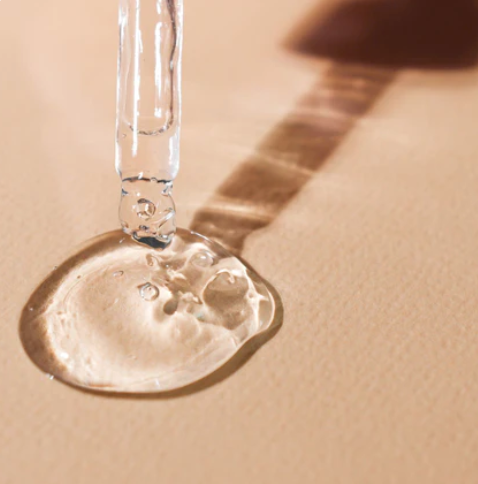Among an endless list of shiny new skincare ingredients, Glycerin is often overlooked. But this under-the-radar skincare hero is a time-tested, derm-approved ingredient that delivers deep hydration and prevents trans epidermal water loss while supporting skin barrier function. With a track record of being a safe, reliable, non-irritating and non-comedogenic ingredient even at higher concentrations, Glycerin is already a key player in many of our favorite clean beauty products including cleansers, toners, serums, moisturizers, and masks and a great multi-tasker that works well with other actives. Here, everything you need to know about this underrated powerhouse.
What is Glycerin?
Glycerin, also known as glycerol, is a humectant that is present in all natural lipids. A colorless, odorless liquid that is derived from vegetable oils such as soybeans and coconuts, it also can be synthetically manufactured. Naturally present in the skin, endogenous glycerol plays a vital role in hydration, elasticity, and epidermal barrier repair. In skincare, Glycerin is used for the same effects. While rarely called out as a key ingredient, Glycerin is often a foundational one in a plethora of skincare and cosmetic products to defend against dryness and maintain the skin’s moisture levels.
Glycerin vs Hyaluronic Acid
While Hyaluronic Acid is often touted as skincare's most powerful humectant due to its ability to hold onto 1,000 times its weight in water, studies show that Glycerin is in fact the most effective humectant for increasing skin barrier moisture. It attracts and retains moisture from the environment (even in low humidity), keeping skin hydrated, and studies show that Glycerin can penetrate the skin barrier and provide continuous hydration for up to six days. Compared to Hyaluronic Acid, Glycerin is also made up of smaller molecules, meaning it’s able to penetrate the skin more easily.
Although both humectants do provide hydration, Hyaluronic Acid and Glycerin differ significantly, as Hyaluronic Acid does not have occlusive or emollient properties. For those with dry and sensitive skin, Glycerin is therefore often a better choice of humectant as it hydrates, improves the skin moisture barrier function, and creates a defensive barrier against environmental irritants.
How does Glycerin benefit skin?
Hydrates
Glycerin is a moisturizer that has both humectant and emollient properties, attracting water molecules from the air and drawing them into the skin, where they are absorbed and help to hydrate and plump up skin cells, while also soothing and softening the skin. If that weren’t impressive enough, Glycerin has occlusive effects, helping to create a barrier on the surface of the skin that prevents moisture loss. Glycerin has also been proven to act as a penetration enhancer, supporting the effective absorption of other skincare ingredients, especially lipids, making it a great addition to any moisturizing product. Glycerin is also very soluble in water, and when used in cleansers, prevents the stripping of the skin’s natural oils, and the tight, dry feeling that can accompany many water-based formulas.
Protects
Glycerin protects the skin from external stressors by acting as a natural barrier, helping to shield the skin from environmental pollutants, UV rays, and other harmful agents that can lead to premature aging and skin damage. By increasing moisture levels in the skin and reducing transepidermal water loss, Glycerin has also been proven to repair and stabilize skin barrier function after just three days of use.
Soothes & Calms
Glycerin is mildly antimicrobial and antiviral and is an FDA-approved treatment for wounds. Glycerin has been found to have a calming effect on the skin, making it a great option for those with sensitive or irritated skin. It is also beneficial for people with skin conditions such as eczema and rosacea, as its emollient properties can help to minimize redness and reduce symptoms like itchiness, dryness, and scaling.
How To Incorporate Glycerine Into Your Skincare Routine
Glycerin’s versatility, efficacy, and suitability for all skin types, even sensitive skin, has made it a common ingredient in the world of clean beauty, so you are probably already using it on a daily basis without even knowing it. Because it boosts the absorption of other lipids, it is often combined with Jojoba Oil, Vitamin E, Squalane, and Ceramides in serums and moisturizers. Ultimately, however, there is no wrong way to use Glycerin. Whether your skin is oily, acne-prone, dry, or sensitive, it’s one of the best moisturizing skin-care ingredients out there.
SHOP OUR TOP PRODUCT PICKS
